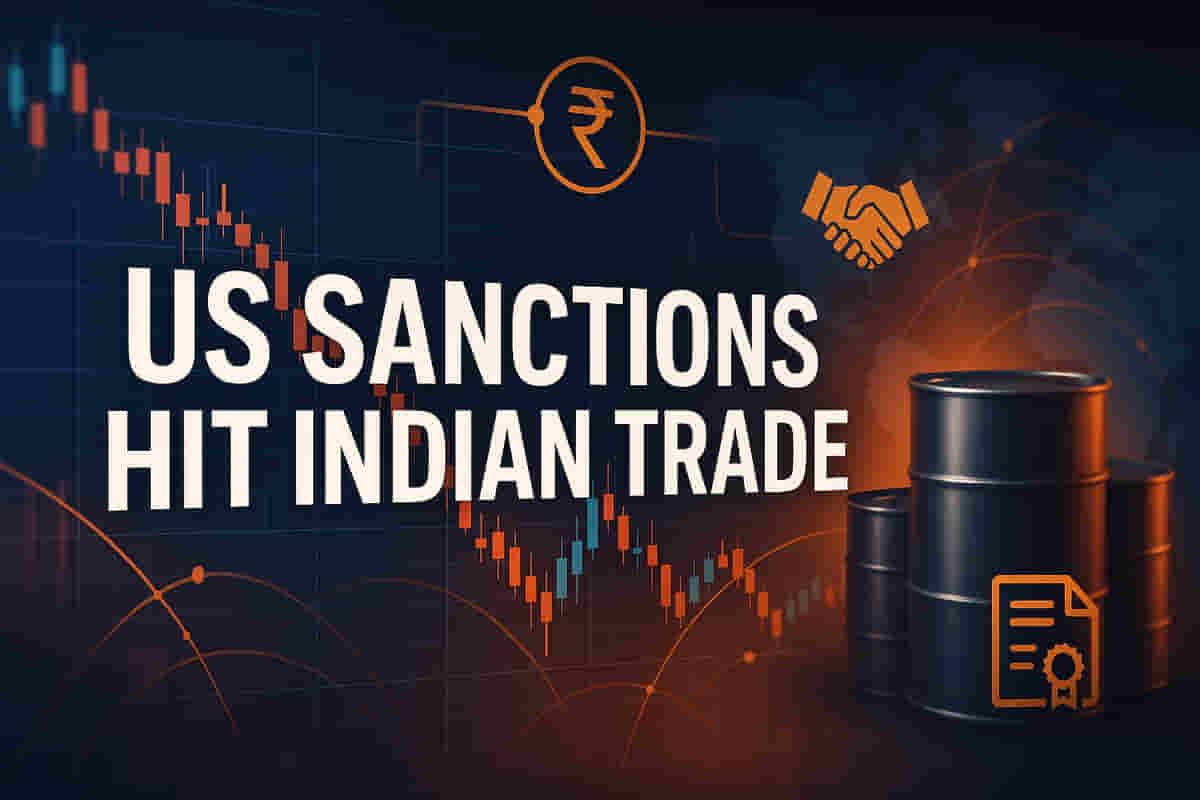US Sanctions on Russian Oil Firms Complicate India's Trade Talks and Oil Imports
Energy
|
1st November 2025, 12:40 AM

▶
Stocks Mentioned :
Short Description :
Detailed Coverage :
The United States has imposed sanctions on major Russian oil producers Rosneft and Lukoil, which account for a significant portion of Russia's crude oil output. This action limits India's options for importing oil, particularly discounted Russian crude, and complicates ongoing trade talks with the US. India is already facing US tariffs on its exports, which have led to a substantial drop in merchandise trade. The sanctions pose a severe threat, as dealing with these Russian firms could expose Indian companies to secondary sanctions, potentially cutting off access to global payment systems like SWIFT and services from US technology firms. Companies like Nayara Energy have already experienced service disruptions due to sanctions. US trade demands are broad, seeking India's market access for industrial and farm goods, relaxed e-commerce rules, and increased purchases of US oil and LNG, while offering limited concessions. The article highlights a worrying precedent from Malaysia's trade deal, which gave the US significant policy leverage. To navigate this, a three-step plan is suggested: 1. Immediately cease oil purchases from Rosneft and Lukoil to avoid secondary sanctions. 2. Press the US to remove the 25% "Russian oil" tariff on Indian goods, which would reduce overall duties. 3. Only after tariffs are removed, restart trade talks focusing strictly on trade terms. India must also consider the implications of allowing genetically modified corn imports and protect its digital policy independence. The immediate impact is visible, with companies like Reliance reducing Russian crude purchases and Adani Ports blocking related vessels. Crude oil prices are expected to rise further due to these supply disruptions. Impact: This news carries significant implications for the Indian stock market, particularly for energy companies, refiners, financial institutions exposed to international trade, and technology service providers. Potential disruptions to financial systems and rising energy costs could impact corporate earnings and inflation. Rating: 9